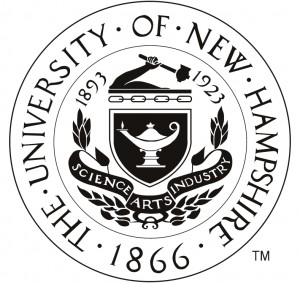The U.S. Department of Commerce has awarded the University of New Hampshire’s Geographically Referenced Analysis and Information Transfer (NH GRANIT) project approximately $1.7 million to manage a program that will inventory and map current and planned broadband coverage available to the state’s businesses, educators, and citizens.
 The New Hampshire Broadband Mapping Program (NHBMP) is a coordinated, multi-agency initiative funded by the American Recovery and Reinvestment Act through the National Telecommunications and Information Administration (NTIA), and is part of a national effort to expand high-speed Internet access and adoption through improved data collection and broadband planning.
The New Hampshire Broadband Mapping Program (NHBMP) is a coordinated, multi-agency initiative funded by the American Recovery and Reinvestment Act through the National Telecommunications and Information Administration (NTIA), and is part of a national effort to expand high-speed Internet access and adoption through improved data collection and broadband planning.
GRANIT, which is housed at the UNH Institute for the Study of Earth, Oceans, and Space (EOS), serves as the statewide geographic information system (GIS) clearinghouse.
“The results of the mapping activity will be an important determinant in future broadband access across the state, which is important for all citizens in terms of economic development, education, health care, public health and safety, and quality of life issues,” says GRANIT director Fay Rubin of the Complex Systems Research Center at EOS.
The state’s nine regional planning commissions will collaborate with GRANIT on data collection and verification activities, as well as conduct regional broadband planning activities. Additional support will be provided by a variety of state agencies, including the Division of Economic Development, the Office of Energy and Planning, and the Public Utilities Commission.

Carol Miller
“We are pleased to set this project in motion. It’s a great example of how collaboration between public and private agencies works for the betterment of all,” says Carol Miller, director of broadband technology at the New Hampshire Division of Economic Development. She adds, “In addition, we will be providing information that will help to develop and track the national broadband plan.”
The Southwest Region Planning Commission (SWRPC) based in Keene is taking the lead role among the regional planning commissions for the project. “This initiative comes at a time of challenge and represents a significant opportunity to address the infrastructure needs of our communities and our state so vital in maintaining a vibrant economy,” says Tim Murphy, executive director of SWRPC.
The project is comprised of two components: a two-year broadband availability inventory and mapping effort, and a four-year planning initiative.
The inventory will use service-area data collected from the 60-plus public and commercial entities, both landline and wireless, that provide broadband services in the state. These data, describing service availability, type, and technology, will help to identify areas of the state that are unserved or underserved by the current broadband infrastructure. Data will also be collected on broadband availability at individual community anchor institutions, including schools, libraries, medical/healthcare locations, public safety offices, and state, county, and municipal buildings.
The planning component of the NHBMP will incorporate the information collected and the momentum generated by the mapping activities into regional broadband plans throughout New Hampshire. It will involve establishing regional broadband stakeholder groups to identify barriers to broadband deployment, promote collaboration with service providers, facilitate information sharing regarding the use of and demand for broadband services, and develop broadband plans for each region of the state.
NTIA has now awarded 41 grants to states and U.S. territories totaling approximately $78 million under the program. In addition to NH, the most recent round of awards went to Iowa, Montana, Utah, and the U.S. Virgin Islands. The agency expects to finish announcing awards under the program in early 2010.
The data collected and compiled under the national program will be used to develop publicly available state-wide broadband maps and to inform the comprehensive, interactive, and searchable national broadband map that NTIA is required by the Recovery Act to create and make publicly available by February 17, 2011.
According to Rubin, the NHBMP is scheduled to deliver a preliminary assessment of areas of the state that are unserved or underserved by broadband to NTIA by this spring.
“We will be contacting agencies, organizations, businesses, and residents in the state and we hope that there will be a high degree of interest in and support for this effort. Collecting accurate and comprehensive data will be critical for the project’s success,” Rubin says.
The University of New Hampshire, founded in 1866, is a world-class public research university with the feel of a New England liberal arts college. A land, sea, and space-grant university, UNH is the state’s flagship public institution, enrolling 12,200 undergraduate and 2,200 graduate students.










 Funds are being awarded through the NSF’s EPSCoR (Experimental Program to Stimulate Competitive Research) Office’s Research Infrastructure Improvement Program Track-2 grant (RII Track-2). The University of New Hampshire, which hosts the New Hampshire EPSCoR Office, is the grant recipient. The University System of New Hampshire operates the current network that serves its four institutions and provides Internet and connectivity services to the Community College System of New Hampshire, and several K-12 schools, libraries, public service centers, and public health and safety organizations across the state. These funds will, in part, help advance larger efforts to develop a regional optical network that will have significantly greater bandwidth speed and help address current and future bandwidth demands.
Funds are being awarded through the NSF’s EPSCoR (Experimental Program to Stimulate Competitive Research) Office’s Research Infrastructure Improvement Program Track-2 grant (RII Track-2). The University of New Hampshire, which hosts the New Hampshire EPSCoR Office, is the grant recipient. The University System of New Hampshire operates the current network that serves its four institutions and provides Internet and connectivity services to the Community College System of New Hampshire, and several K-12 schools, libraries, public service centers, and public health and safety organizations across the state. These funds will, in part, help advance larger efforts to develop a regional optical network that will have significantly greater bandwidth speed and help address current and future bandwidth demands. 